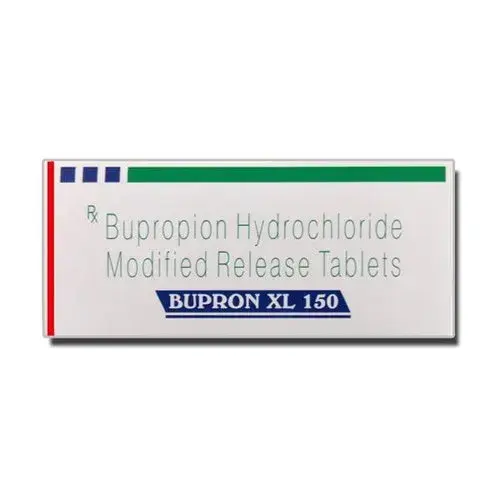Addiction Medications: A Comprehensive Guide
Addiction medications are used to help individuals manage and overcome substance use disorders, such as addiction to alcohol, opioids, nicotine, or other drugs. These medications can play a crucial role in supporting recovery and improving quality of life. Here’s a clear overview of addiction medications, including details on causes, health conditions, symptoms, side effects, diagnosis, prevention, and common questions.
Understanding Addiction
Causes: Addiction is a complex condition with multiple contributing factors, including:
-
Genetics: A family history of addiction can increase susceptibility.
-
Environmental Factors: Exposure to drug use, stress, or trauma can contribute to addiction.
-
Brain Chemistry: Changes in brain function and neurotransmitter systems can reinforce addictive behaviors.
-
Psychological Factors: Mental health disorders such as depression or anxiety often accompany addiction.
Health Conditions: Addiction can lead to a variety of health issues, both physical and mental:
-
Physical Health Problems: Liver disease (alcohol), lung disease (smoking), cardiovascular issues, and infectious diseases (needle-sharing).
-
Mental Health Issues: Depression, anxiety, and cognitive impairments.
Symptoms: Symptoms of addiction vary depending on the substance and individual, but common signs include:
-
Cravings: Intense desire to use the substance.
-
Loss of Control: Inability to limit substance use despite attempts.
-
Withdrawal Symptoms: Physical and psychological effects when not using the substance.
-
Tolerance: Needing more of the substance to achieve the same effects.
-
Neglect of Responsibilities: Failing to meet work, family, or social obligations.
Types of Addiction Medications
**1. Medications for Alcohol Use Disorder:
-
Disulfiram (Antabuse): Causes unpleasant reactions when alcohol is consumed, helping deter drinking.
-
Naltrexone (Vivitrol, ReVia): Blocks the effects of alcohol and reduces cravings.
-
Acamprosate (Campral): Helps restore balance to brain chemicals disrupted by alcohol, reducing cravings and withdrawal symptoms.
**2. Medications for Opioid Use Disorder:
-
Methadone: A long-acting opioid that helps reduce cravings and withdrawal symptoms without causing euphoria.
-
Buprenorphine (Subutex, Suboxone): A partial opioid agonist that reduces cravings and withdrawal symptoms, with less risk of overdose.
-
Naltrexone (Vivitrol): An opioid antagonist that blocks the effects of opioids and helps prevent relapse.
**3. Medications for Nicotine Addiction:
-
Nicotine Replacement Therapy (NRT): Includes patches, gum, lozenges, and nasal sprays that provide a controlled amount of nicotine to ease withdrawal symptoms.
-
Bupropion (Zyban): A prescription medication that helps reduce cravings and withdrawal symptoms by affecting brain chemicals.
-
Varenicline (Chantix): Reduces cravings and withdrawal symptoms by stimulating nicotine receptors in the brain and reducing the pleasure derived from smoking.
**4. Medications for Other Substance Use Disorders:
-
Topiramate: Used off-label for alcohol use disorder and some stimulant addictions.
-
Modafinil: May be used for cocaine addiction to reduce cravings and improve mood.
Side Effects
Addiction medications can have side effects, which vary depending on the drug:
-
Disulfiram: Nausea, vomiting, headache, and liver toxicity if alcohol is consumed.
-
Naltrexone: Nausea, headache, dizziness, and liver issues in rare cases.
-
Acamprosate: Diarrhea, nausea, and anxiety.
-
Methadone: Drowsiness, constipation, and risk of overdose.
-
Buprenorphine: Headache, nausea, constipation, and potential for misuse.
-
Nicotine Replacement Therapy: Skin irritation (patches), mouth or throat irritation (gum or lozenges), and nausea.
-
Bupropion: Insomnia, dry mouth, and risk of seizures in rare cases.
-
Varenicline: Nausea, vivid dreams, and mood changes.
Diagnosis and Prevention
Diagnosis: Addiction is diagnosed through a combination of:
-
Medical History and Physical Examination: Assessing the impact of substance use on health and daily life.
-
Psychological Evaluation: Identifying patterns of behavior and mental health conditions.
-
Diagnostic Criteria: Using criteria from sources like the DSM-5 to determine the severity of the addiction.
Prevention: Preventing addiction involves multiple strategies:
-
Education: Learning about the risks of substance use and the benefits of a healthy lifestyle.
-
Support Systems: Building strong family and social support networks.
-
Mental Health Care: Addressing mental health issues and seeking therapy or counseling.
-
Healthy Coping Mechanisms: Developing skills to manage stress and emotional challenges without resorting to substances.
Common Questions
-
How long does it take for addiction medications to work?
-
The effectiveness of addiction medications can vary. Some medications may start showing results within a few weeks, while others may take longer. It’s important to follow the prescribed treatment plan and communicate with your healthcare provider about progress.
-
-
Can I take addiction medications if I have other health conditions?
-
Yes, but it’s crucial to inform your healthcare provider about all your health conditions and medications to avoid interactions and ensure safety.
-
-
What should I do if I experience severe side effects?
-
Contact your healthcare provider immediately if you experience severe side effects or have concerns about the medication. They may adjust your treatment or suggest alternatives.
-
-
Are there non-medication treatments for addiction?
-
Yes, addiction treatment often includes therapy, counseling, and support groups in addition to medication. A comprehensive approach can provide better outcomes.
-
-
Can addiction medications be used long-term?
-
Some medications are used long-term as part of a recovery plan, especially for managing cravings and preventing relapse. Your healthcare provider will guide you on the appropriate duration for your specific situation.
-
Understanding addiction medications and their role in treatment can help you or your loved ones manage substance use disorders more effectively. Always consult with a healthcare provider for personalized advice and treatment tailored to your needs.


.png)








































